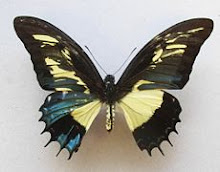I am willing to recognize we have differences, but not that there is a line drawn between us so that I cannot participate in your struggles and you cannot comprehend mine.
Yes, there are things someone can only understand if they've been there--but they can understand there is something they cannot understand. They can trace the perimeter of it, read the parameters, find out what they need to do.
I defy the disjunction between an ally and a community member. An ally participates in the struggles of the group, feels hurt when it is hurt, feels joy when it triumphs, carries prejudiced rubbed off by association, relinquishes the privilege of the dominant group to not think about the issue, the inequality, the inequity. Yes, there are gradations of participation, gradations of harm, but there are those within the recognized community itself.
***
Just now I realized I could be a straight cisgendered woman without losing any of myself, any of my freedom to live the lifestyle I want, any of my identity. Such fears used to drive, have driven my second-guessing of the labels I applied to myself--and my latching on to the labels in the first place. I did that with mental illness as well as sexuality and gender, identifying with illness so hard because I was afraid that without the label, my experiences would be invalidated, my inabilities and quirks defined as willful delinquency.
In the high school environment, I felt my sexuality invalidated at every turn. High school and the media invalidate most everyone's sexuality: you're too slutty, you're not sexy, you're a laugh-worthy virgin, you're immoral, you're too young or inexperienced, you're infatuated, you're deficient, you're female, you're male, you look gay, you're uncool...
I heard the biphobic messages. I heard the homophobic messages. I heard the messages about beauty and social status and how confused “girls” are. My father went into denial the moment I came out to him as bisexual at 15. He moved on from there to venom. Others assumed I'd move on, “choose one,” most likely men because, you know, men are just more attractive.
Oftentimes, any sign that I might be more attracted to men, I suppressed with panic--what if I was really the pathetic, sex-starved, confused, femininely weak girl they thought I was? Just making up the bisexuality because I hadn't had the real thing yet. Worse yet, deserving of the dismissal and derision I felt I was treated with.
After high school, I encountered an actual queer community. I protested and attended queer events. I was proud, but again I was afraid--of losing the beliefs and values of the queer community, of being forced by rogue sexual fluidity back into the heterosexual world. I didn't separate heterosexuals from heteronormativity.
Now I have. Two things helped with that: my numerous enriching experiences with straight allies who can be just as queer as the rest of us (if they want to), and my accumulation of broken gender norms. My body hair and my bare face and my variable clothing and my ideas are all mine. My feminism is not contingent upon my queerness. My social liberalism is not contingent on my innate difference. My participation in the struggle of the transgendered and genderqueer people is not contingent on my being one of them.
I am not coming out as a straight woman. I am definitely not straight--but I am guilty of minor attempts to “hide the evidence” of my attraction to and relationships with men, which is crazy and unjust to them. I'll be well-rid of that bias.
As for woman? Still wide-open on that front. I have no innate desire to abandon my identity as a genderqueer, androgyne, slightly-bigendered mostly-agendered person, agenderist, etc, but sometimes I worry that my identity as such is unnecessary and causes more trouble than it's worth--that the identity and the narrative I have in my head about it create the problems the narrative claims they are in response to. That I wouldn't feel weird when people called me “she” or referred to me as female if I hadn't latched onto this label three years ago--in this model of the scenario, mostly in response to the alienation I felt from the misogyny and social isolation I grew up with and partly in an over-enthusiastic show of solidarity. As I attempt to resolve this self-doubt, I might move toward a female identity--but on the other hand, I really don't want to.
Wednesday, April 27, 2011
Subscribe to:
Comments (Atom)



